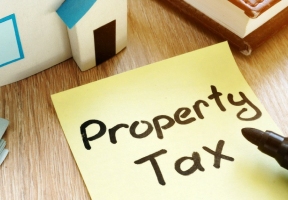
Cook County Assessor Fritz Kaegi released a data dashboard that displays where property assessments rose and fell in every Chicago neighborhood following the city’s 2021 reassessment. Chicago’s total Assessed Value (AV) grew 31 percent since its last reassessment, from $35.87b in 2018 to $47.02b in 2021. Residential AV growth (10%) was outpaced by AV growth in all other property classes (56%), which reduces homeowners’ share of total AV and will have an effect on property tax bills released in 2022. “My office’s 2021 reassessment of nearly nine hundred thousand homes, apartments, grocery stores, and high-rise office buildings is like a property tax reset for Chicagoans,” said Cook County Assessor Fritz Kaegi. “Better data, more staff, and improved transparency are producing better, fairer assessments that people can understand and trust.”
A 31 percent increase in AV does not mean property taxes will increase 31 percent. Assessments shift who pays what share of the total tax levy. When the share of one property owner or neighborhood grows, another owner or neighborhood’s share shrinks. The total amount of the property tax levy to be collected is set by taxing bodies like the City of Chicago, Chicago Public Schools, and others. Three years of assessed value growth reflected in the 2021 reassessment is good news for most Chicago property owners.
Homeowners: Residential AV growth (10%) was outpaced by AV growth in all other property classes (56%). This reduces homeowners’ share of total AV.
Neighborhoods: Most of Chicago’s share of AV growth is concentrated in the Loop, River North, and West Loop areas. This causes reductions in the property tax share throughout neighborhoods in the north and south sides of the City.
Retail property owners: The reassessment captured conditions for property types in each neighborhood. For example, total AVs for large commercial buildings grew 67% in the Loop, but shrank -13% in Englewood












